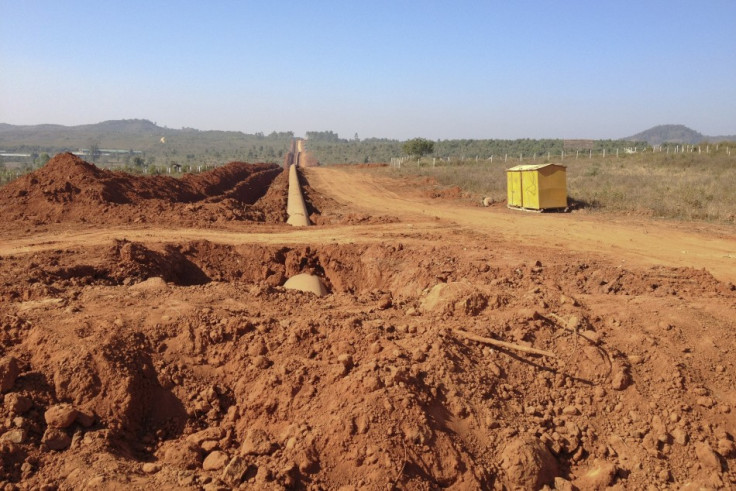Human Rights Abuses and Land Grab Claims Fail to Stop Myanmar-China Gas Pipeline Opening
Rights groups claim pipeline from western Myanmar has caused land grabs, labour abuses, pollution and ethnic conflicts

A gas pipeline which has just opened between Myanmar and China has been the cause of human rights abuses, land grabs and large-scale pollution, according to human rights campaigners.
Human rights groups and local communities have accused those behind the construction of the 2,500km pipeline of a series of abuses and said that ethnic conflicts had been exacerbated by it.
Shwe Gas Movement (SGM) reported that boys as young as 14 had been recruited by foreign sub-contractors to work as labourers, while fishermen and farmers had lost their land because of environmental destruction or land confiscation.
A man from Rakhine state told local newspaper The Democratic Voice of Burma: "They are dumping waste in the field after working with the bulldozer. Now we cannot work in the field."
The pipeline, will supply energy-poor regions in southwest China including Yunnan, Guizhou, Chongqing and Guangzi with natural gas from western Myanmar.
Described as the largest extractive project in Myanmar, it is joint venture between Beijing's state-owned China Natural Petroleum Corporation and Myanmar's national Myanmar Oil and Gas Enterprise. Companies from South Korea and India also have stakes in the project.
The pipeline is expected to provide 12 billion cubic metres of gas each year, the China National Petroleum Corporation told the Global Times.
The pipeline has gone into full operation after three years of construction.
It also runs through two conflict zones - Myanmar's western Rakhine state, where sectarian violence over the past year has killed hundreds and left 140,000 without homes, and the volatile Chinese border town of Ruili, where fighting between Myanmar government forces and the rebel Kachin Independence Army broke out earlier this year.
Mark Farmaner, director of the Burma Campaign, told IBTimes UK that the pipeline construction was linked with a greater military presence.
"We have seen an increase in militarisation and human rights abuses, including a big increase of rape and sexual abuse in areas the pipeline is due to go through," he said.
"This is not helping the people of Burma".
The pipeline has been claimed to reduce the price of gas in China and help the country diversify its energy imports. Prof Lin Boqiang, of the China Centre for Energy Economics Research at Xiamen University, said: "China's piped gas is mainly imported from areas around the Malacca Strait. Now, we have one more pipeline from the land instead of the seabed, which will decrease dangerous factors."
The pipeline is expected to earn Myanmar's government US$1.8bn (£1.1bn) a year - a total of US$54 billion over 30 years of operation.
© Copyright IBTimes 2024. All rights reserved.






















